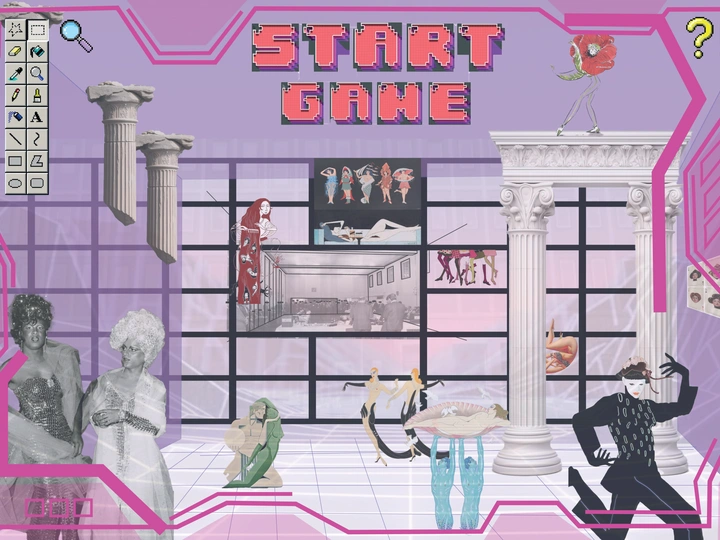Q*Wir

Erza Mehmedi
We are Maria (23) and Erza (24), two architects based in Vienna. Our backgrounds - Maria, born and raised in Austria in a working-class family with roots in Russia; Erza, born in North Macedonia with Albanian heritage and living alone in Vienna since the age of 14 - have deeply shaped how we move through and think about space. Experiencing life from the margins has made questions of access, identity, and belonging central to both our personal experiences and our practice.
We are both driven by a shared commitment to queer-feminist spatial strategies that challenge normative systems and open space for multiplicity, contradiction, and care. Architecture, for us, is never neutral, it reflects power and has the capacity to exclude or empower. Our aim is to develop tools and methodologies that question dominant spatial narratives and reimagine how we relate to the built environment, each other, and ourselves.
We are particularly interested in everyday spaces and how they hold the potential for quiet resistance and radical reimagining. Our work engages with questions such as: How can shared spaces support collective agency? How can design reflect care, conflict, and complexity rather than smooth, controlled surfaces? We approach these questions through both theory and practice - combining research, lived experience, and material-based, hands-on work like building and crafting.
Recently, we presented a small exhibition at our university showcasing our approach to architecture. It was a challenge, as queer-feminist and critical spatial practices remain rare in institutional settings. Despite obstacles, we succeeded, which strengthened our commitment to develop our methodology further and share it beyond academia. We believe architecture should not only reflect reality but actively help transform it—from the margins and in collaboration with others.
Q*wir - Reclaiming Urban Space Through Architectural Curation
Q*wir is a curatorial and spatial research project that began as a university studio in Urban Planning and Landscape Architecture. It engages with the 20th district of Vienna (Brigittenau), where we identified overlapping urban issues: high rates of gender-based violence in public space - including femicides, rapes, and the killings of female sex workers - as well as vacant unused and unclaimed spaces. Rather than solve these issues through traditional design tools, Q*wir treats the city as a stage: a site for reimagining systems of care, power, and representation.
At the center of Q*wir is a performative, architectural curation titled “Deconstructed Kitchen / Deconstructing Cities”, hosted in the vacant Margarete Schütte-Lihotzky Festsaal - an homage to Austria’s first female architect. The kitchen becomes a site of reflection and disruption, confronting who controls urban space and who performs its invisible labor.
“Get Comfy” is a second room: soft, fragrant, and domestic at first glance - but layered with an unsettling audio collage of real stories of violence against women in Brigittenau. It subverts comfort, exposing the tension between public image and lived experience.
Both spaces are accessed through “Soft Detour”, an outdoor labyrinth that mirrors the nonlinear, disoriented experience of being queer or marginalized in urban space built on a patriarchal system.
Q*wir proposes a critical spatial practice rooted in care, community, and resistance. Through architectural curation, we turn vacancy into visibility and question who our cities are truly built for.
Our project will expand as a dynamic, evolving space for queer feminist experimentation, hosting workshops, community events, and collaborative art. We want to connect globally, inspiring new practices and resistance against normative urban planning in diverse contexts.